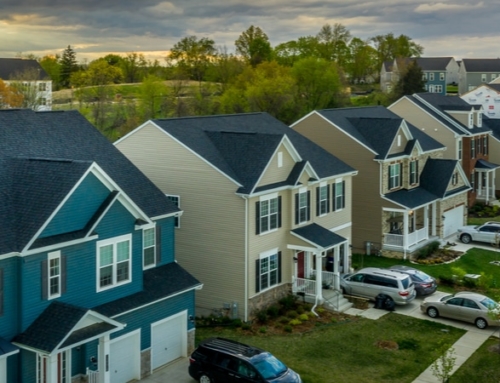And I thought I was pessimistic about the economy.
I sat in a room a few days ago with people who work for companies that represent all parts of our financial lives. There was an economist who worked for a foundation, several executives who work for big financial corporations, a housing analyst, representatives from a couple of mortgage companies, a real estate finance professor, and a bankruptcy judge.
Some folks in the room (like the economist) were more pessimistic about the economy than others. He said he believes we’ll soon slip into a recession that would rival the Great Depression. His pessimism is based primarily on how much debt the U.S. has accumulated in the past few years, and how the Euro is replacing the dollar as the backup currency of choice in the world.
Others (the mortgage lenders) think the housing situation is bad but manageable. Of course, finding out that new and existing real estate sales are down dramatically from last year, falling further than expectations, isn’t good. Mortgage loan production is down as well.
The typical loan officer did 62 loans last year, compared with 83 loans in 2005. But even those loans aren’t very profitable, according to the Mortgage Bankers Association’s most recent study. Due to increased costs, mortgage lenders are losing an average of $50 on every loan they make, compared with a profit of $258 per loan completed in 2005.
The bankruptcy judge says she’s seeing more filings, but a lot of what’s in front of her are mortgages that should have never been made, or bankruptcies caused by unexpected medical expenses.
Therapists sometimes advise their nervous patients not to “pile on.” The idea is if you pile all of your concerns, worries, and aggravations onto of each other, you can get easily overwhelmed.
I wonder how much more “piling on” the American wallet can take.
Right now, the typical American consumer is paying a lot more for gas and is facing higher energy costs in general. It costs more to insure his or her house, and for many people, property taxes are rising as well (my taxes will rise nearly 60 percent). Fewer employers are offering health insurance, and those that are offering some sort of coverage are requiring employees to pay a larger percentage of those costs.
On the mortgage side, more than 2 million homeowners will face foreclosure next year, according to a new report from the Joint Economic Committee of Congress. In September, the Bush administration predicted only 500,000 homeowners would face foreclosure.
In addition, nearly $2 trillion worth of adjustable mortgages will reset. Some folks will be able to refinance because their credit is shot. But many people whose houses are declining in value may not have enough equity in their homes to get a new loan.
Some economists suggest that home prices could decline 10 to 20 percent between now and 2009, evaporating $2 trillion in home value. This wouldn’t help anyone who needs home equity to refinance, consolidate credit cards, pay student loans or buy a new car. It’s hard to use your house as a piggy bank if the piggy bank is empty.
In the face of all of these additional expenses, some folks are still out at Wal-Mart, K-Mart, Sam’s Club and Costco, shopping like crazy. Others are using their credit cards to pay for regular and ordinary expenses, like food and gas, then growing that balance of necessities from month to month.
At some point, you run out of cash, credit, and home equity. I just wonder when we’re going to hit that point and what that will look like.
Which brings us to Christmas.
I don’t know about you, but my mailbox is already stuffed full of catalogs promising me fast, free delivery if I’ll order now for December 25th. Are retailers angling to get your dollars now before the carousel stops?
Oct. 27, 2007.






Leave A Comment